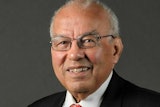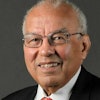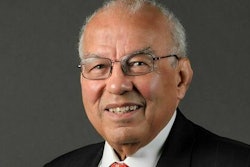When the Personal Is Political: Telling and Selling Our Stories
By Julianne Malveaux
Anthony Samad is a Los Angeles-based political scientist, economic developer and political activist. He has written a weekly column in California for more than a decade, focusing on social, political and race issues affecting African Americans. For all of his accomplishments, the greater contribution he has made is in his recent autobiographical discourse, Souls for Sale: The Diary of an Ex-Colored Man (Los Angeles: Kabili Press: 2002). Somewhat cumbersomely subtitled “Conflict and Compromise of Second Generation Advocacy in the Post Civil Rights Era,” the book is a blessing and a lesson to those who would participate in volunteer advocacy. Samad’s story is complicated enough to fill up more than 600 pages of insights, infights and personal revelations. In some ways, this is one man’s story. In other ways, it belongs to us all.
This is a case where, as Gloria Steinem so often says, the personal is political. This is a story of a Black man who wanted to do nothing more than serve, but got caught up in ego-tripping, turf fights and a generational conflict. He emerged as a stronger person, but there were major setbacks along the way. The personal is political because too often there are folks who want to serve but find they can’t because others won’t let them. What does it say about the next stage of the struggle that those who are willing, eager and able become cannon fodder for the venal?
I would assign Anthony Samad’s book in a political science class that looked at the internal workings of civil rights organizations and to understand the kind of obstacles that we, African American people, face in working together. I would assign his book in an African American studies class that talked about Black politics. I am excited that this Black man was willing to do what all authors are asked to do: cut a vein and let it all hang out. He has shared from the bottom of the soul and his book is a cautionary tale to those of us who say that we would serve.
The personal is, indeed, political. When you find people saying the same thing over and over, it’s not a problem, it’s a trend. How many young African Americans find themselves repelled by the civil rights establishment? Why? Samad lays it out. Some folks are jealous of their power and influence and don’t want to share it. Others have created petty fiefdoms that are less about the people than about themselves. What we learn from Samad’s book is how one man handled the nonsense. Hopefully, many of us can learn from the lessons Samad is sharing.
Bernestine Singley is another writer who elucidates the same point. She has assembled an awesome compendium of essays in her new book, When Race Becomes Real: Black and White Writers Confront Their Personal Histories (Chicago: Lawrence Hill Books, 2002). Essays from Robert Coles, Beverly Daniel Tatum, Natalie Angier, Patricia Williams, Derrick Bell and Leonard Pitts Jr. all offer a personal perspective on race. Why deal with this? Because at a time when the playing field is hypothetically level, both African American and White writers talk about ways that it isn’t. Another book which can be well served in the classroom.
Full disclosure here. I am one of the 30 writers that contributed to this book. I love the flippancy of my piece, but I also love the interplay of the other pieces — the way that young, White Tim Wise calls himself on his own stuff, the way John Seigenthaler claims his status as “son of the South.” Singley is engaging and witty, and I love the stately way she tells the story of why she thought this book was so important.
On Sept. 3, my book with Gen X White Republican, Deborah Perry was published. Unfinished Business: A Democrat and a Republican Take on the 10 Most Important Issues Women Face (New York: Perigee Books, 2002) is as much the weaving of personal stories as it is a political primer. We explore issues from a personal perspective to help readers understand why we end up embracing certain positions. Collaborating with my total opposite may have been one of the most difficult things I’ve ever done. Daily, there are conflicts about space, time and place, about White skin privilege, about presidential (and residential) merits. Again, the personal is political. But we came together because we think that women (and everyone else) should be more involved in the political process. We keep working together because we think our voices make a difference. Because our book embodies such political contrast, we hope that political science and women studies professors will consider it as course material.
All three of the books present personal stories that can be dissected and makes a set of powerful connections between lives and public policy. While exploring the personal often has limitations, some imaginations resist the purely theoretical and crave concrete examples of connection. Gloria Steinem got it right. When I hear my story while listening to yours, I have an opportunity to both learn and act.
© Copyright 2005 by DiverseEducation.com















